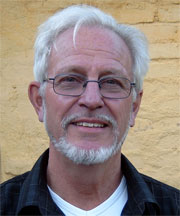Chapter 13 of 200 Years Together recounts the period of the February Revolution of 1917—the revolution that toppled the czar and led to a period of instability followed in October by the Bolshevik Revolution. (See here; donations are of critical importance for finishing this important project.) Solzhenitsyn is critical of the radical slogans of the period—e.g., “All Russian life must be rebuilt from the roots.” Solzhenitsyn responds as a cultural conservative, aware of the danger of uprooting ancient institutions because they do not conform to an ideal as decreed by an intellectual elite: “A thousand-year life! — why, all of a sudden from “the roots”?
There was a consensus that Jews must have the same legal status as any other citizen. Quotas in education were repealed, as were restrictions on land ownership. For example, Jews were allowed to serve as military officers and as full-fledged attorneys. Those with a reputation of having anti-Jewish views were targeted for prosecution or dismissal. For example, the chief investigator of the Menahem Beilis ritual murder trial was dismissed because he had allowed testimony of an expert witness for the prosecution, not only for the defense.
Given Solzhenitsyn’s views on the restrictions on Jews discussed in Chapter 5, his quoting Jewish sources describing the old regime is presumably meant to suggest Jewish hypersensitivity and over-dramatization of their plight under the Czar; for example, a Jewish commentator: “Like hard labor camp prisoners on their way to camp, all Jews were chained together as despised aliens…. The drops of blood of our fathers and mothers, the drops of blood of our sisters and brothers fell on our souls, there igniting the inextinguishable revolutionary fire.”
The revolution did indeed improve life for the Jews. But “as for the rest of the country, falling, with all its peoples, into an abyss — that was the unpredictable way of the history.”
Solzhenitsyn notes that the American Jewish financier Jacob Schiff had long had a prominent role in opposition to the Russian government.
[After the February Revolution, Schiff wrote,] “I was always the enemy of Russian absolutism, which mercilessly persecuted my co-religionists. Now let me congratulate … the Russian people for this great act which they committed so perfectly.” Schiff was quick to provide credit and financing for the new Russian government. “Later in emigration, the exiled Russian right-wing press published investigative reports attempting to show that Schiff actively financed the Revolution itself. Perhaps Schiff shared the short-sighted Western hope that the liberal revolution in Russia would strengthen Russia in the war. Still, the known and public acts of Schiff, who had always been hostile to the Russian absolutism, had even more effect than any possible secret assistance to such a revolution.”
The role of Schiff in financing the revolution is acknowledged by mainstream historians:
In fact, American Jewish capitalists like Jacob Schiff did finance Russian radical movements directed at overthrowing the Czar and may well have had considerable impact (Goldstein 1990, 26–27; Szajkowski 1967). The leaders of Western Jewish communities were highly committed to the overthrow of the czar. For example, in 1907 Lucien Wolf wrote to Louis Marshall of the AJCommittee that “the only thing to be done on the whole Russo-Jewish question is to carry on persistent and implacable war against the Russian Government” (in Szajowski 1967, 8). “Western Jewish leaders actively participated in general actions in favor of the liberal and revolutionary movements in Russia both during the revolution and after its downfall” (Szajkowski 1967, 9). (Separation and Its Discontents, Ch. 2, p. 37.)
Although traditional Jews reacted with caution to the revolution, the secular Jews who created the dynamic energy of the Jewish community were “eager to build ‘the happy new world.’” Jews quickly achieved important offices in the new regime. Nevertheless, Solzhenitsyn blames the Russians themselves for what happened:
No, the February Revolution was not something the Jews did to the Russians, but rather it was done by the Russians themselves, which I believe I amply demonstrated in The Red Wheel. We committed this downfall ourselves: our anointed Tsar, the court circles, the hapless high-ranking generals, obtuse administrators, and their enemies — the elite intelligentsia, the Octobrist Party, the Zemstvo, the Kadets, the Revolutionary Democrats, socialists and revolutionaries, and along with them, a bandit element of army reservists, distressingly confined to the Petersburg’s barracks. And this is precisely why we perished. True, there were already many Jews among the intelligentsia by that time, yet that is not basis enough to call it a Jewish revolution.
Solzhenitsyn sees the February Revolution as a Russian ethnic revolution, but one that in the long run most benefited the Jews, whereas the Russians “got nothing but harm and destruction.” With the revolution, the Jewish community had attained everything it wanted, so that “the October Revolution was altogether unnecessary for them, except for a small slice of young cutthroat Jews who, with their Russian internationalist brothers, accumulated an explosive charge of hate for the Russian governing class and burst forth to ‘deepen’ the Revolution.” Solzhenitsyn acknowledges that in his earlier work he had exaggerated the role of the Russians and minimized the Jewish role—not wanting the Russians to deceive themselves on what happened by blaming others. He makes the important point that “the ideology [of the February Revolution] was permeated and dominated by intransigent hostility to the historical Russian state.” Such an ideology did not characterize “ordinary Russians” but it did characterize Jews and the Russian intelligentsia. The character of the revolution was therefore determined not by popular attitudes but by the attitudes of an intellectual elite and by ethnic outsiders—the forerunner of the hostile elite that came to power with the Bolsheviks.
[adrotate group=”1″]
Solzhenitsyn places particular importance on the ethnic composition of theExecutive Committee of Workers’ and Soldiers’ Deputies — a powerful committee that became an important focus of power outside the Kerensky government. “It was precisely this Executive Committee, and not the judiciary, not the timber industrialists, not the bankers, which fast-tracked the country to her doom.” Not counting soldiers placed on the committee to give it a Russian face, of the 30 people “who actually wielded power, more than half were Jewish socialists. There were also Russians, Caucasians, Latvians and Poles. Less than a quarter were Russians.”
Solzhenitsyn claims to resist the temptation “to look for a guilty party” in this, but the implication is clear: Russia had fallen into the hands of foreigners. Worse, they were foreigners with a grudge against the entire fabric of traditional Russian society — holding views quite at odds with the vast majority of Russians. The grudge was not only against the government of Czar, but against all social strata and all manifestations of traditional Russian culture.
In any crime, there is a perpetrator and a victim. One can always blame the victim for not resisting sufficiently, for not understanding the gravity of the situation, or for having illusions about the consequences of the crime. But clearly, the moral onus is on the perpetrator—the individual or groups that commit the crime. Solzhenitsyn is being very clear where the onus of guilt for the direction of the February Revolution lies, especially given his views that the restrictions on Jews were nowhere near as oppressive or unreasonable as claimed by Jewish activists. Thus there was no legitimate motive to rebuild all of the thousand-year Russian life “from the roots.” Given the totality of Solzhenitsyn’s view, the blame lies with the Jews and other foreigners who together made up the great majority of the most revolutionary elements that propelled the country into the abyss.
One can certainly blame the Russians for losing this battle, as Solzhenitsyn hints. But in the end, what mattered is that losing the battle unleashed a torrent of murderous hostility not only against the previous elites but against millions of ordinary Russians.
It is a lesson that Whites throughout the West would do well to ponder. Alliances among non-White ethnic groups, led by Jews as an element of the elite, are already a reality of politics of America, centered around the Democratic Party; similar phenomena exist in other Western countries. As was the case in the February Revolution, the motive for multiculturalism is fear and loathing of the traditional peoples and cultures of the West. Although a sudden anti-White revolution on the model of the February Revolution is unlikely in the near term, the long term trends are clear. The ultimate folly for any ethnic group is to give up political power.
Kevin MacDonald is editor of The Occidental Observer and a professor of psychology at California State University–Long Beach. Email him.






